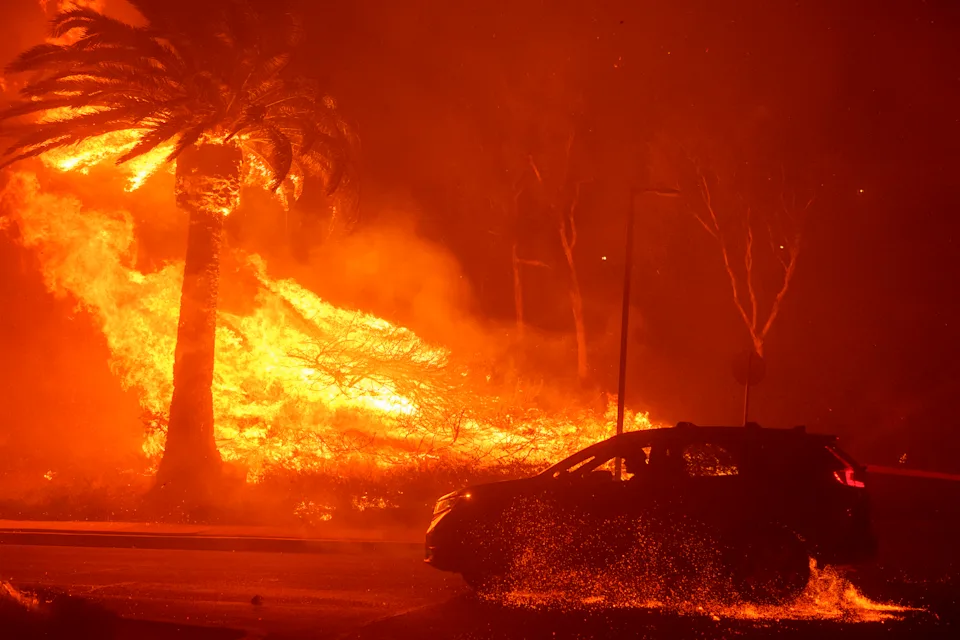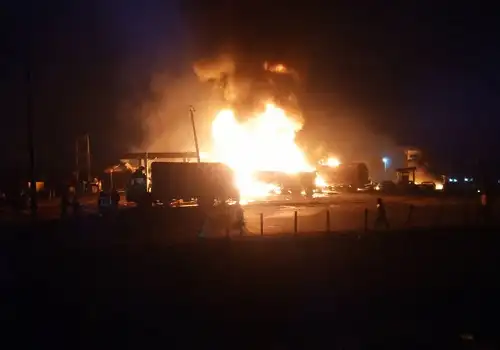Southern California is grappling with a series of devastating wildfires that have intensified over the past week, leading to widespread evacuations and the declaration of a state of emergency. The fires, fueled by prolonged drought conditions and high winds, have rapidly spread across multiple counties, threatening communities and natural resources alike.
The largest of these fires, the Eaton Fire, ignited on the evening of June 25 in the San Gabriel Mountains. Driven by powerful Santa Ana winds, the fire quickly expanded into foothill communities, particularly impacting Altadena. As of July 2, the Eaton Fire has consumed over 14,000 acres, destroyed more than 9,000 structures, and resulted in at least 18 fatalities. Authorities have issued evacuation orders for approximately 100,000 residents in the affected areas. The cause of the fire remains under investigation, with initial reports suggesting the involvement of high-tension power lines operated by Southern California Edison.
Concurrently, the Palisades Fire erupted on June 26 in the Santa Monica Mountains, rapidly engulfing large portions of Pacific Palisades, Topanga, and Malibu. The fire has burned over 23,000 acres, destroyed more than 6,800 structures, and claimed at least 12 lives. Evacuation orders have been implemented for approximately 105,000 residents in the impacted regions. Similar to the Eaton Fire, the exact cause of the Palisades Fire is under investigation.
In response to the escalating crisis, California Governor Gavin Newsom declared a state of emergency on July 1, mobilizing additional resources to combat the fires and assist affected communities. The declaration facilitates the allocation of state funds and resources to support firefighting efforts and provide relief to evacuees. The California National Guard has been activated, with 150 troops reassigned from federal duties to assist with wildfire response. This marks the first significant drawdown of federal troop involvement since President Trump deployed thousands, including 700 U.S. Marines, in response to protests over ICE raids.
The fires have also led to significant power outages, with over 400,000 customers affected as of July 2. Southern California Edison has reported widespread outages due to fire damage to infrastructure and the implementation of Public Safety Power Shutoffs to prevent further fire risks. Residents are advised to prepare for extended periods without electricity and to follow evacuation orders promptly.
Air quality has deteriorated significantly in the affected areas, with hazardous levels of smoke and particulate matter prompting health advisories. Residents are urged to stay indoors, keep windows and doors closed, and use air purifiers if available. Those with respiratory conditions should seek medical attention if symptoms worsen.
The wildfires have also disrupted transportation, with several major highways closed due to fire activity and structural damage. Travelers are advised to check the latest road conditions before embarking on journeys and to avoid non-essential travel in the affected regions.
As firefighting efforts continue, authorities emphasize the importance of adhering to evacuation orders and staying informed through official channels. The situation remains dynamic, and residents are encouraged to prioritize safety and follow guidance from local officials.












Do you think controlled burns could prevent such devastating wildfires? Or is there a better solution? Lets discuss!
Do you think climate change is a major factor in the increase of wildfires? Lets discuss! 🔥🌎 #ClimateChangeDebate
Is it just me or are these wildfires getting more frequent and intense every year? Something needs to change.
Is it just me or are wildfires getting worse every year? Climate change or mismanagement? Thoughts?
Isnt it crazy how wildfires seem to be getting worse every year? Do you think its just bad luck or is there something more going on?
Do you think controlled burns should be implemented more to prevent these devastating wildfires in California? #FirePrevention #StaySafe